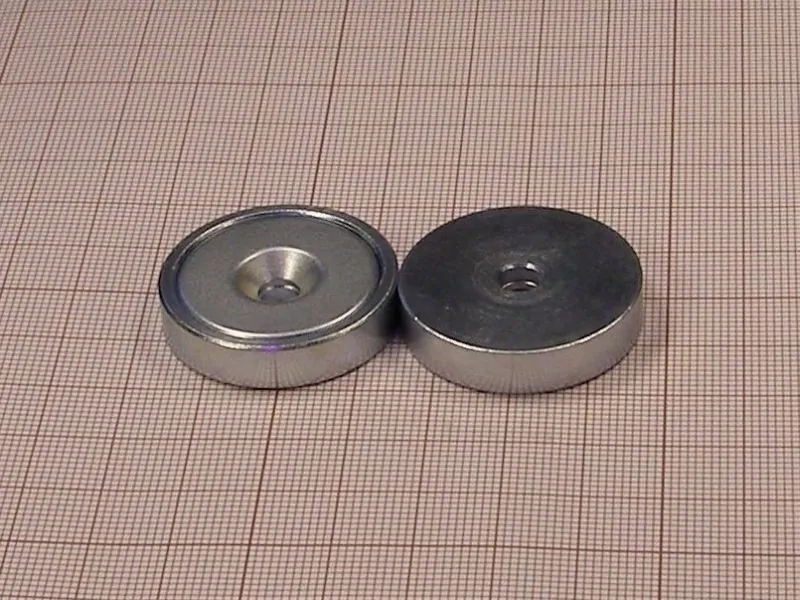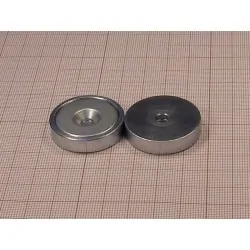




The pull force given refers to hoisting capacity measured in optimal conditions, by using as a backing plate a sheet made of low-carbon steel, 10 [mm] thick, of smooth surface and with the force acting perpendicularly, in room temperature.
Notice: the pull force given should be treated as only a comparative value. An actual pull force depends on the following factors:
Holding magnets are simple magnetic circuits composited of a magnet and a steel housing. Because of that, in the holding magnets both magnet poles are used (one works directly, and the second saturates the housing, which also act on the attracted element), they are characterized by a relatively high pull force parallel to significantly reducing of the operating range.
In the holding magnet sintered neodymium magnet was used. Max. working temperature for holding magnets involving neodymium magnets is 80°[C].
You will find attached a dimensional drawing of the holding magnet.